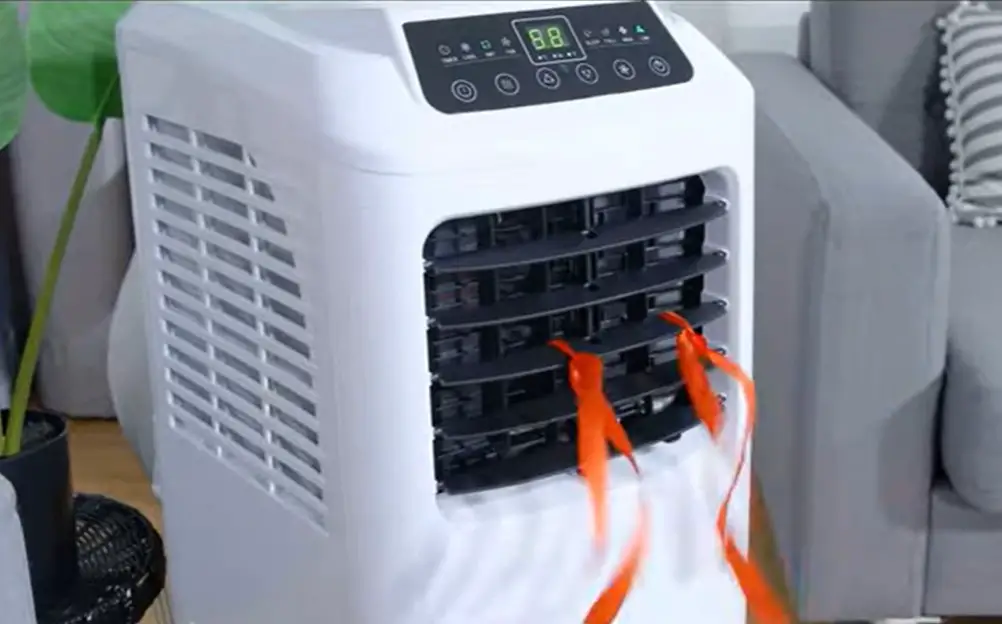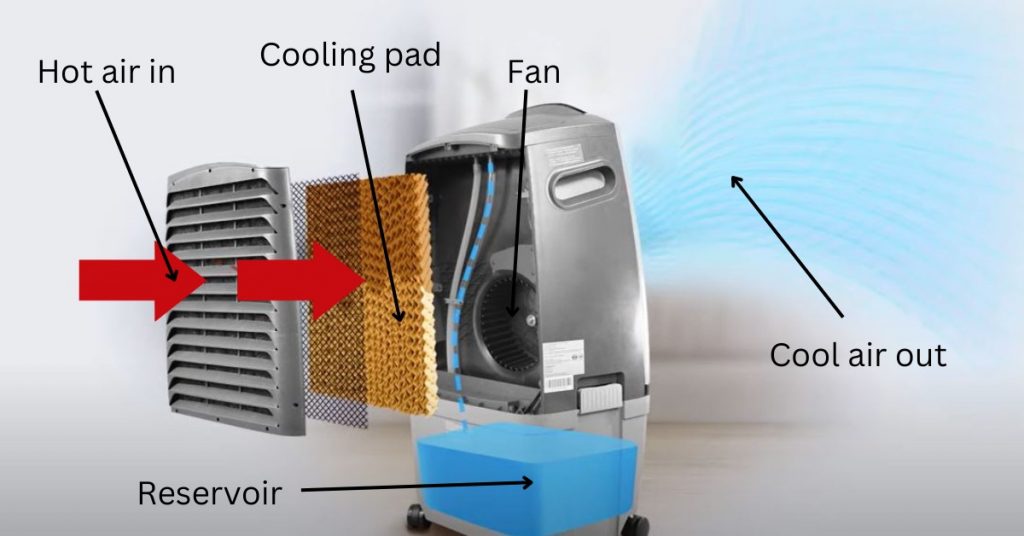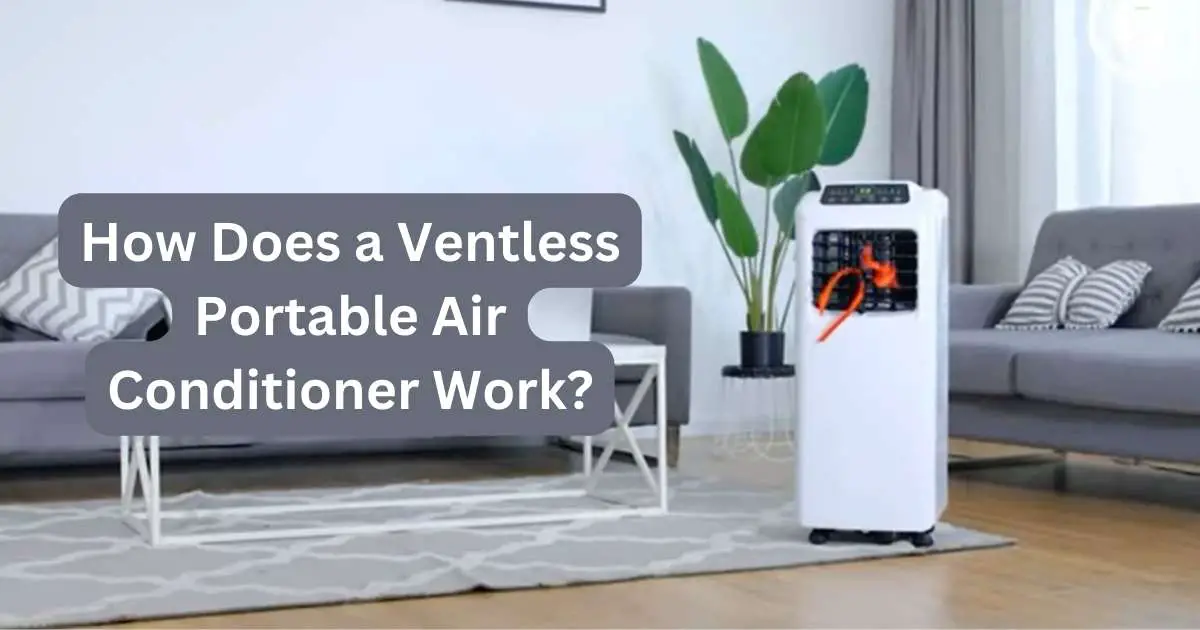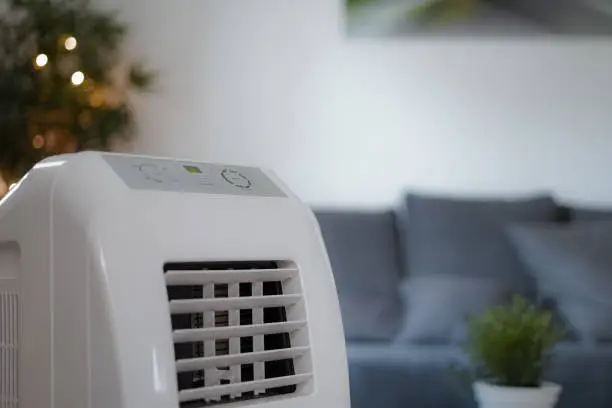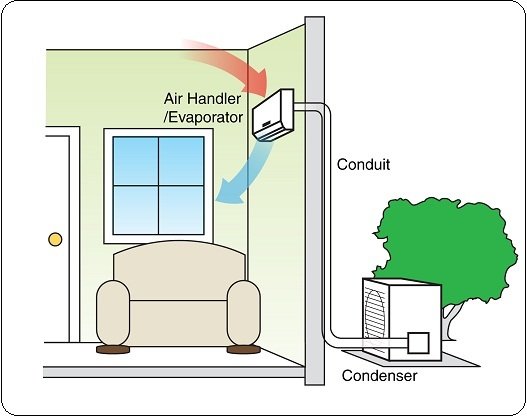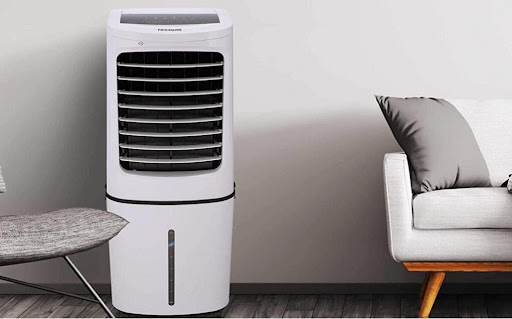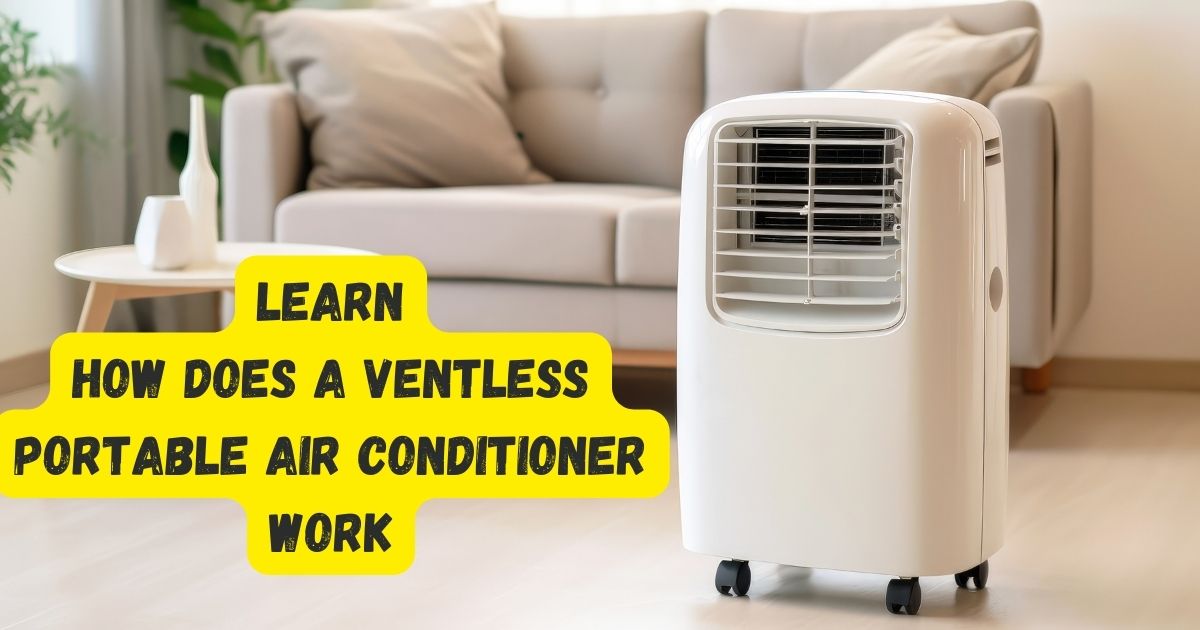How Does A Ventless Air Conditioner Work

Ventless Air Conditioners: A Cool Solution for Energy Savings?
As energy costs continue to rise and environmental concerns grow, homeowners and businesses alike are seeking innovative ways to stay cool without breaking the bank or harming the planet. Ventless air conditioners, also known as evaporative coolers or swamp coolers, have emerged as a potential alternative to traditional refrigerant-based AC units. But how do they work, and are they truly a worthwhile investment? Let's dive into the science and practicalities of ventless cooling.
The Science Behind Evaporative Cooling
Unlike traditional air conditioners that use refrigerants to cool air, ventless AC units rely on the principle of evaporative cooling. This process leverages the natural cooling effect that occurs when water evaporates. Here's a simplified breakdown:
- Water Absorption: The ventless AC unit contains a water reservoir that supplies water to a cooling pad or filter.
- Evaporation: A fan draws warm, dry air from the room through the saturated cooling pad. As the air passes through the pad, the water evaporates.
- Cooling Effect: The evaporation process requires energy, which is drawn from the air itself. This energy transfer causes the air temperature to drop significantly.
- Cool Air Circulation: The cooled, humidified air is then circulated back into the room by the fan.
The efficiency of evaporative cooling is highly dependent on the humidity of the surrounding air. The drier the air, the more effectively the water can evaporate, and the greater the cooling effect. In humid climates, the evaporation rate is reduced, making ventless AC units less effective.
Types of Ventless Air Conditioners
Ventless air conditioners come in various forms, each with its own advantages and disadvantages:
- Portable Evaporative Coolers: These are standalone units that can be easily moved from room to room. They typically have a water tank that needs to be refilled periodically.
- Whole-House Evaporative Coolers: These systems are installed on the roof and can cool an entire house. They require a water line connection and typically have a drain.
- Personal Space Coolers: Smaller, USB-powered units designed for cooling a small area, such as a desk or bedside table. Their cooling capacity is limited.
Energy Efficiency and Cost Savings
One of the main selling points of ventless air conditioners is their energy efficiency compared to traditional AC units. Here's a comparison:
- Energy Consumption: Ventless AC units consume significantly less electricity than refrigerant-based ACs. A typical portable evaporative cooler might use 100-200 watts, while a window AC unit can use 500-1500 watts or more.
- Operating Costs: Lower energy consumption translates to lower electricity bills. In dry climates, the savings can be substantial.
- Environmental Impact: Ventless AC units don't use refrigerants, which are potent greenhouse gases. This makes them a more environmentally friendly option.
Data Point: According to the U.S. Department of Energy, evaporative coolers can use up to 75% less energy than traditional air conditioners in dry climates.
ROI Example: Let's say a window AC unit costs $0.15 per hour to operate, while a ventless AC unit costs $0.03 per hour. If you use the AC for 8 hours a day for 3 months (90 days), the savings with the ventless AC would be (0.15 - 0.03) * 8 * 90 = $86.40. This can quickly add up, especially in larger homes or businesses.
Limitations and Considerations
Despite their energy efficiency, ventless air conditioners have limitations:
- Humidity: As mentioned earlier, their effectiveness is significantly reduced in humid climates. They can even make a room feel more uncomfortable in already humid conditions.
- Maintenance: They require regular maintenance, including cleaning the cooling pads and refilling the water tank. Some models also require periodic descaling to prevent mineral buildup.
- Cooling Capacity: They typically don't cool as effectively as refrigerant-based AC units, especially in larger spaces or during extreme heat.
- Water Consumption: While energy-efficient, they consume water. This can be a concern in areas with water scarcity.
Choosing the Right Ventless AC Unit
If you're considering purchasing a ventless air conditioner, keep the following factors in mind:
- Climate: Assess the humidity levels in your area. If you live in a dry climate, a ventless AC unit might be a good option.
- Room Size: Choose a unit with a cooling capacity appropriate for the size of the room you want to cool. Look for models with CFM (cubic feet per minute) ratings.
- Features: Consider features like adjustable fan speeds, timer settings, and remote controls.
- Water Tank Capacity: A larger water tank means less frequent refilling.
- Maintenance Requirements: Opt for models that are easy to clean and maintain.
- Energy Star Rating: While Energy Star primarily focuses on traditional ACs, look for models with efficient designs and low energy consumption.
Rebates and Incentives
Some local and state governments, as well as utility companies, offer rebates and incentives for energy-efficient appliances, including ventless air conditioners. Check with your local utility company and the Energy Star website to see if any rebates are available in your area. These rebates can further reduce the upfront cost of a ventless AC unit, making it an even more attractive investment.
Smart HVAC Integration
While ventless ACs might not directly integrate with complex smart home systems like smart thermostats designed for central AC, there are still ways to enhance their performance with smart technology:
- Smart Plugs: Use a smart plug to control the power to the ventless AC unit remotely. You can schedule it to turn on and off at specific times, or control it via a smartphone app.
- Humidity Sensors: Monitor the humidity levels in your home with a smart humidity sensor. This can help you determine when a ventless AC unit is most effective. If the humidity is too high, you might need to switch to a traditional AC unit or dehumidifier.
- Voice Control: Connect the smart plug to a voice assistant like Amazon Alexa or Google Assistant to control the ventless AC unit with voice commands.
Ventless vs. Traditional AC: A Comparison Table
| Feature | Ventless Air Conditioner | Traditional Air Conditioner |
|---|---|---|
| Energy Consumption | Low | High |
| Cooling Capacity | Moderate | High |
| Climate Suitability | Dry Climates | All Climates |
| Refrigerant Use | No | Yes (Potentially Harmful) |
| Maintenance | Moderate | Low |
| Upfront Cost | Lower | Higher |
| Environmental Impact | Lower | Higher |
Conclusion: Is a Ventless AC Right for You?
Ventless air conditioners offer a compelling alternative to traditional AC units, especially in dry climates where their energy efficiency can lead to significant cost savings. They are also a more environmentally friendly option due to their lack of refrigerants. However, they are not a one-size-fits-all solution. Their effectiveness is limited in humid climates, and they may not provide the same level of cooling as traditional AC units.
Before making a purchase, carefully consider your climate, cooling needs, and budget. Explore available rebates and incentives, and consider integrating smart technology to enhance the unit's functionality. By making an informed decision, you can enjoy the benefits of ventless cooling while maximizing energy savings and minimizing your environmental impact.
For HVAC contractors, understanding the pros and cons of ventless ACs allows you to offer a wider range of solutions to clients, catering to different needs and budgets. Highlighting the energy savings and environmental benefits can be a strong selling point, especially for environmentally conscious customers. Offering smart home integration options can further enhance the value proposition.
